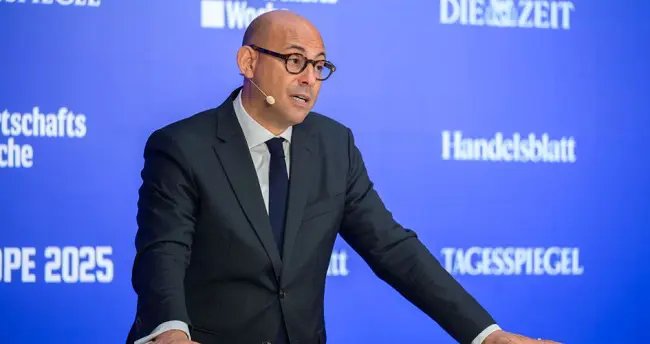Olusegun Ariyo
Executive Secretary of UN Climate Change, Simon Stiell, says clear and strong climate policies are an antidote to trade and economic uncertainty.
He believes climate policy can help get trade flowing and economies growing, while preventing wildly destructive climate impacts.
Speaking at the 2025 Nature Summit in Panamá City, Panamá, he noted that a new generation of national climate plans is essential all around the world.
He says these plans, when well implemented through the right political leadership, can attract a bonanza of benefits, including more jobs, more revenue and a virtuous cycle of increased investment.
“In the past, climate plans have often focused mainly on cuts – cuts to greenhouse gas emissions and to old-fashioned energy. This new generation of climate plans is really about growth. Growing industries and economies. And building a better future. One where nature is protected, and where people have better opportunities,” he states.
Amid all the crises and trade disruptions, the UN Climate Change chief says there is also good news of clean energy projects in pipelines across the globe.
“Investors have their fingers on the button – waiting to push go on multi-billion-dollar commitments that will make lives better,” says Stiell.
He says the political and policy signals from almost all of the world’s largest economies are very clear: global decarbonisation is unstoppable and continues to gather pace and scale.
More than 90% of new energy last year was renewable, from rapid technological advancements in Electric Vehicle charging, to breakthroughs in energy storage, as the costs of wind, solar, and so many more clean technologies keep coming down.
Brazil is putting nature at the heart of its climate plan; Germany promises to invest billions in climate action to increase security; and China, for the first time, will set a new national climate target covering every greenhouse gas and sector of the economy.
“This isn’t only because of their better environmental angels. It’s because global decarbonisation is the biggest economic transformation of our age, making it one of the biggest commercial opportunities we’ve ever seen,” notes Stiell.
The UN Climate chief says every country wants to take advantage of a $2 trillion clean energy market.
“While competition is a good thing, now is not the time for zero-sum thinking. We need to work together to ensure that everyone benefits. That new markets open and new trade routes form.
“We simply cannot afford a two-speed transition, where some countries race ahead with clean energy and climate resilience and leave others behind. Because a supply chain is only as strong as its most fragile link.
“The good news is, we are also hearing loud and clear from heads of state that they remain committed to cooperation on climate. To build on breakthroughs we’ve seen at every recent COP,” Stiell notes.
Panama is hosting the first of the new revamped UN Climate Weeks, focusing on making real-world progress, showcasing solutions and exploring how they can be scaled up and shared.







